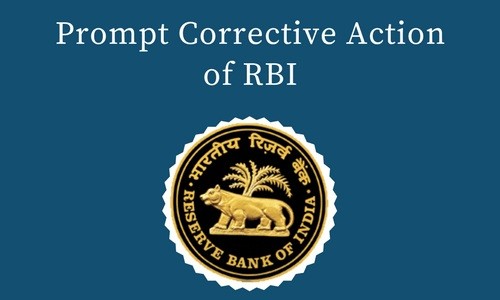ICRA report on probable PSB’s under PCA – Recall of Rs 157-bn AT-1 bonds may lead five Public Sector Banks under Reserve Bank of India’s (RBI’s) Prompt Corrective Action Plan (PCA). These five public sector banks are Canara Bank, Punjab National Bank, Union Bank of India, Andhra Bank and Punjab & Sind bank. Earlier, With losses during the last three years, 11 out of 21 PSBs have been placed under the PCA framework by the RBI. Prominent among them are Bank of India, IDBI Bank, Central Bank of India, Dena Bank, and Corporation Bank. RBI analyse the capital adequacy ratio (CAR), net NPAs, and return on assets (RoA) for putting any bank under PCA.
Read – What is Prompt Correction Action (PCA) ?
As per Rating agency ICRA these five bank’s net non-performing assets (NPAs) rose above 6 per cent in December 2017. As per the requirement of RBI to put undr NPA minimum requirements of CAR or net NPAs rise above 6 per cent or the RoA is negative for two years.
Read – What are other PSB’s under PCA ?
The Major Impacts
- Public sector banks have raised total of Rs 603.85 billion in the last four years.
- The raised AT-1 bonds shore-up their Tier-1 capital ratios.
- These AT-1 bond issuance took place in the backdrop of losses, increasing capital requirements under Basel-III, and limited capital infusion by the government in relation to their requirements.
- The recapitalization has improved the capital ratios of PSB’s.
- ICRA stated that depending on AT-1 bonds issued by individual banks, the capital ratios can reduce by 0.7-2.0 per cent of risk weighted assets of these banks.
- Cumulatively, the PSBs reported losses before tax of over Rs 920 billion between Q3FY16 and Q3FY18.
- These huge losses of PSBs’ leads their inability to service AT-1 bonds while meeting regulatory features had been steadily weakening, as bonds can be serviced through profits of the year or accumulated profits (in case there is a loss during the year).
What is AT-1 Bonds ?
AT-1 bonds are such bonds which doesn’t have any maturity date. AT-1 bonds continue to pay the coupon forever. Under these type of bonds the issuing bank has the option to call back the bonds or repay the principal after a specified period of time.
The good part in such type of bonds from investor part is higher yield than secured bonds issued by the same entity. The advantage of AT-1 bonds are:
- The issuing bank has the discretion to skip coupon payment.
- Generally coupon is paid from profits or revenue reserves in case of losses for the period when the interest needs to be paid.
- The bank has to maintain a common equity tier I ratio of 5.5%, failing which the bonds can get written down.
- AT-1 bonds can be converted into equity. AT1 bonds are also referred to as quasi-equity.
input from BS

